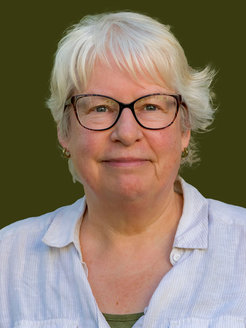Jane Parker honored as Fellow of the Royal Society
A huge congratulations to Jane Parker who is among the new Fellows elected to join the UK’s Royal Society for outstanding contributions in the field of sciences.

Janes’ group, within the Department of Plant Microbe Interactions at the Max Planck Institute for Plant Breeding Research, focuses on understanding how plants regulate their immune responses and how they can turn on key defence mechanisms. Her group investigates which molecules and pathways are involved in stopping pathogens from growing and how immunity barriers impact the establishment and activities of plant-associated beneficial microbes.
'It's an incredible honour for me to become a Fellow of The Royal Society. I'm delighted. '
Jane studied Applied Biology at the University of Bradford, UK and obtained her PhD in 1987 at The University of Wales in Swansea, UK. Her curiosity for plant-microbe interactions was sparked as a postdoctoral fellow (sponsored by The Royal Society and EMBO) at The Max-Planck Institute for Plant Breeding Research in Cologne, followed by research at The Sainsbury Laboratory in Norwich, UK. In 2001, Jane moved with her family back to Cologne to take up a senior research group leader position in the Department of Plant Microbe Interactions at the Max-Planck Institute for Plant Breeding Research.
In 2009, Parker was made an Associate Professor at The Institute for Genetics, University of Cologne. She was elected to The German Academy of Sciences (Leopoldina) in 2013 and as a member of EMBO in 2016. In 2023 she was elected to the National Academy of Sciences, US. Parker contributes to various science committees and is a member of the Board of Directors for The International Society for Plant-Microbe Interactions (IS-MPMI).
Founded in 1660, the Royal Society accommodates around 1700 Fellows and Foreign Members. Every Year the UK’s National Science Academy, announces its new intake of Fellows, based on excellence in science. Fellows are elected for life through a peer review process. Selection of fellows are made by candidates having made 'a substantial contribution to the improvement of natural knowledge, including mathematics, engineering science and medical science’.
The Royal Society is dedicated to ‘promote, and support excellence in science and to encourage the development and use for science for the benefit of humanity’.












